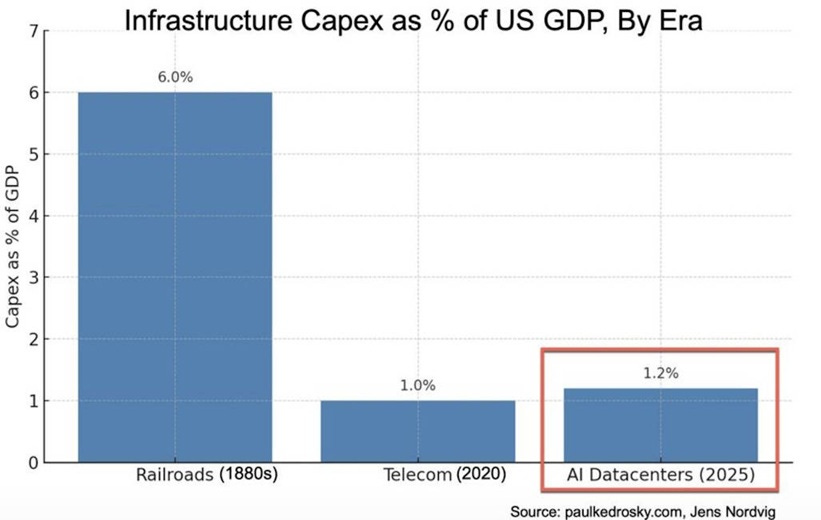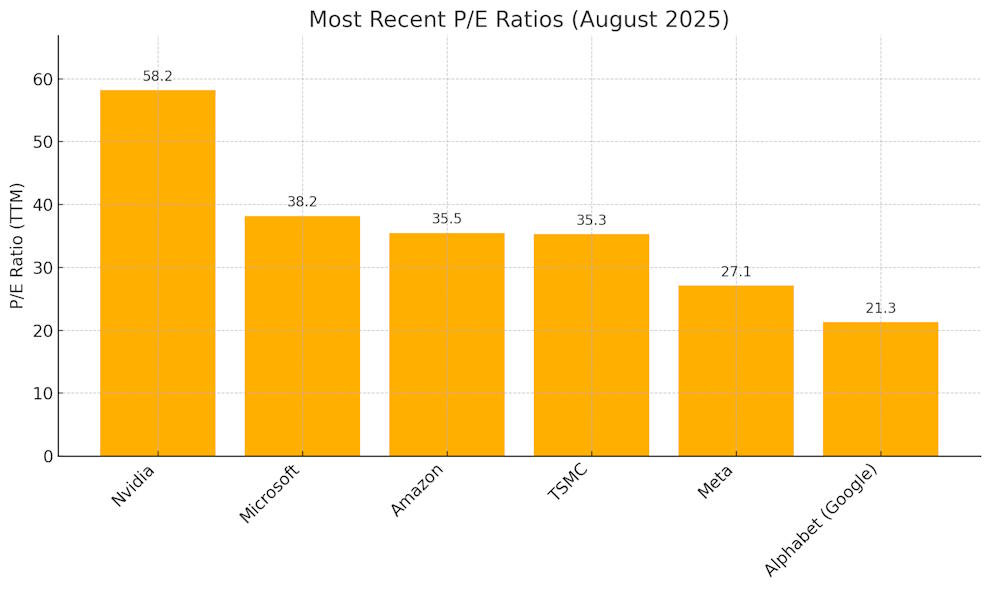Who will actually profit from the AI boom?
Competition still exists, folks.

In a post a week ago, I shared some pretty startling numbers about the size of the AI-related capex boom:

In fact, this boom is so big that in 2025 so far, AI-related investment has contributed more to economic growth than all the growth in consumer spending combined. Since consumption is more than three times as big as investment overall, this is a really startling fact — it means that consumption is sluggish, while AI capex is sustaining economic growth all by itself. Paul Kedrosky calls this a “private sector stimulus program”, and he’s not wrong.
My last post asked whether a crash in the AI sector would hurt the U.S. economy. But there’s another important question here, which is who is actually going to make a profit from all this spending. Will it be the AI model companies themselves, like OpenAI, xAI, and Anthropic? Will it be the companies that provide the compute to train and run the AI models — Amazon, Microsoft, and Google? Will it just be the GPU companies like Nvidia that provide the physical infrastructure?
The profit question is an important one if you’re an investor, of course, since corporate valuations are (usually) based on how much profit companies make — not on how much they invest or how much total revenue they generate. But it’s also important if we want to understand the social impact of the AI boom — in particular, the question of whether AI will lead to extreme economic inequality.
There’s a narrative out there that after AI takes everyone’s jobs, the only people in society who will have money are the people who own the AI companies — the Sam Altmans and Elon Musks of the world, and perhaps the Satya Nadellas and Jensen Huangs. It’s possible to spin sci-fi scenarios where the mass of humanity is impoverished and starving, while a few Robot Lords order their pet AI gods to use all of Earth’s resources to colonize the Solar System.
In reality, those scenarios would run into political problems (i.e., war) long before they came to pass. But it’s important to ask whether that’s the direction in which our economic system is naturally heading. Thomas Piketty, for instance, wrote that inequality in society tends to increase until some sort of major political event — war, revolution, etc. — forces it back down. Some people worry whether the AI boom will represent the fulfillment of that dark vision.
It’s worth it to note that so far, stock markets don’t actually expect anything that extreme to happen. When you look at the price-to-earnings ratios of the major public AI-related companies, they’re somewhat high but not particularly astronomical:

If markets expected these companies to reap untold bonanzas of profit thanks to AI, they’d be valued at far greater ratios to their current earnings, because people would expect their earnings to grow very rapidly. As for OpenAI, xAI, and Anthropic, their combined valuation is still less than $1 trillion; for comparison, Nvidia’s current valuation is around $4.5 trillion. So markets also don’t currently expect the big AI labs to make untold profits, either. As for the broader market, the PE ratio of the S&P 500 is around 30 — historically somewhat high, but not astronomically high.
So we seem to have a disconnect between a popular narrative and market expectations. If AI is going to make all the money in the economy, why are markets not expecting companies to see truly wondrous profit growth? The answer, I think, is that markets are remembering something that popular commentary and folklore has forgotten — the importance of corporate competition in limiting capital income. Investors know that AI companies are going to compete with each other, and that this is going to limit how much they can profit from their creations.


